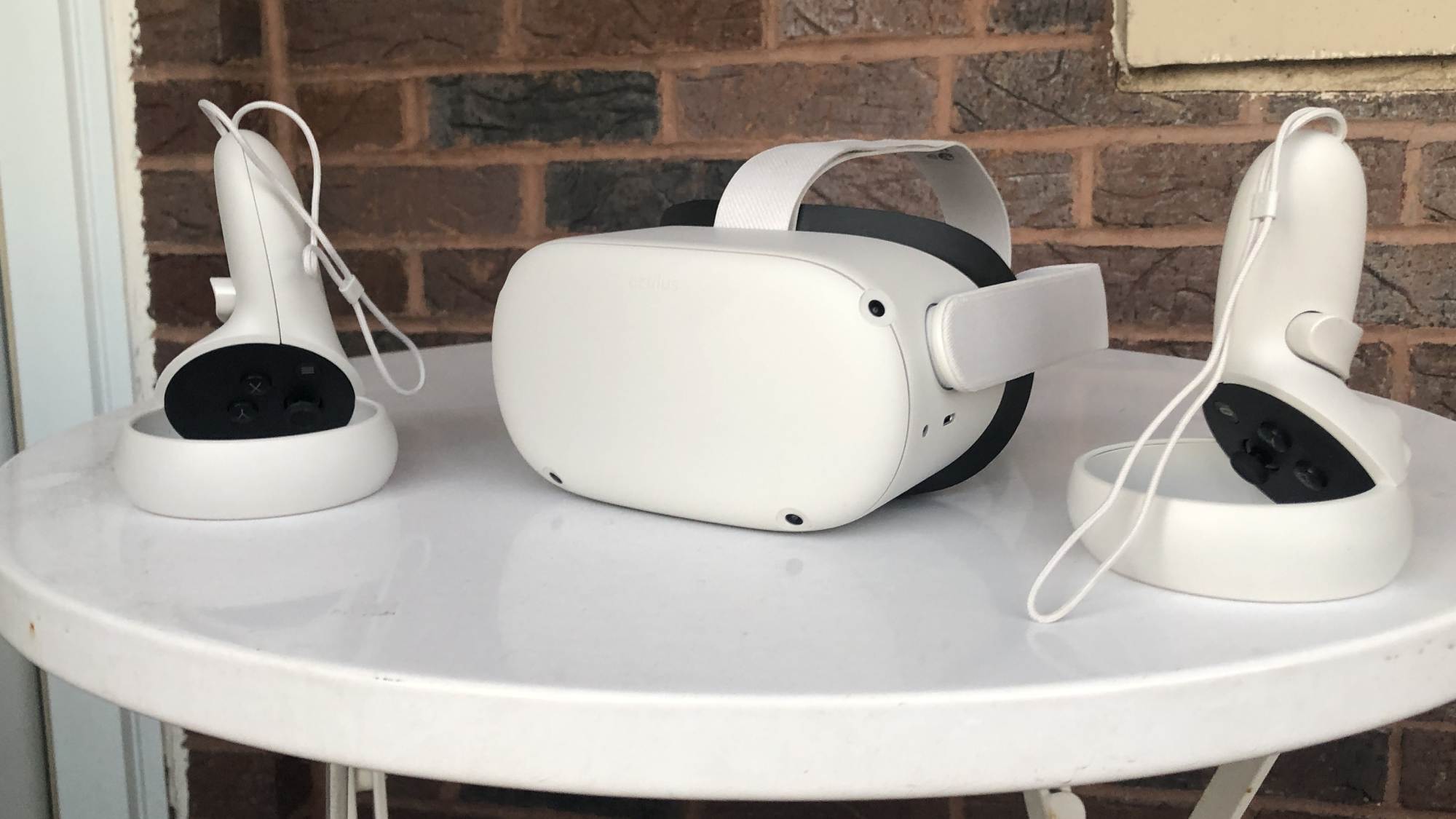Forget Oculus Quest 2 — Facebook just teased killer Quest 3 upgrades
Oculus Quest 3 could come with eye and face tracking tech

Update: Currently, there's a good deal on for Cyber Monday for the Oculus Quest 2, and that makes it now a great time to hunt down the VR headset.
The Oculus Quest 2 may be our pick for the best VR headsets you can buy right now, but the Oculus Quest 3 looks like it will bring in some serious upgrades.
In an interview with The Information (flagged by UploadVR), Facebook’s CEO Mark Zuckerberg explained how the next Oculus Quest could come with face and eye tracking to allow for users to have a more realistic presence in a virtual environment. Zuckerberg also basically confirmed that there’d be an Oculus Quest 4 in the not-so-distant future as well.
- Here's how to setup and use your Oculus Quest 2
- Where to buy Oculus Quest 2: Latest stock updates
- Just In: Forget AirPods: Cambridge Audio earbuds have a killer hi-fi mode
“Because of how hardware gets developed, you kind of need to know what your next three products are going to look like all at the same time,” said Zuckerberg. “We have product teams spun up now working on the next few generations of virtual reality and what Quest 3 and 4 are gonna look like.”
Give the appetite around finding where to buy the Oculus Quest 2, it’s no surprise that Facebook would capitalize upon the success its VR headset has been experiencing and plot out future generations.
But while the Quest 2 is excellent for VR experiences and gaming, it would appear that more work is needed to make it a platform for having a truly compiling virtual presence. And one way to do that, according to Zuckerberg, could be with eye and face tracking. It would better capture a person's expressions and translate that onto a virtual avatar giving them a more realistic presence in a virtual environment.
“One of the things I’m really excited about for future versions is getting eye tracking and face tracking in, because if you’re really excited about social presence you want to make sure the device has all the sensors to really kind of animate realistic avatars so you can communicate well,” Zuckerberg explained.
Get instant access to breaking news, the hottest reviews, great deals and helpful tips.
The social networking luminary went on to explain that there are technical challenges to doing this given the number of sensors that would be needed in a VR headset. It’s worth remembering that the Oculus Quest and Quest 2 are both all-in-one systems, so have no external sensors and relatively constrained computing power. More advanced tracking generally tends to be the domain of expensive VR headsets attached to a powerful PC, such as the Valve Index.
“On the VR side, I think the biggest things that we’re very focused on now are: how do you pack more sensors, to create a better social experience, into the device? To run each sensor requires more CPU power and that generates more heat and creates all these different issues,” said Zuckerberg.
He continued to note that better face and eye tracking will yield more realistic avatars. Facebook has already got avatars on its main platform — check out our how to make your own Facebook avatar guide — but they have a very cartoon-like aesthetic.
How soon Facebook will come up with a next-generation Oculus Quest isn't clear. But this gives us a teaser of what we could expect from the next Quest headset, and that’s rather promising.

Roland Moore-Colyer a Managing Editor at Tom’s Guide with a focus on news, features and opinion articles. He often writes about gaming, phones, laptops and other bits of hardware; he’s also got an interest in cars. When not at his desk Roland can be found wandering around London, often with a look of curiosity on his face.
 Club Benefits
Club Benefits





